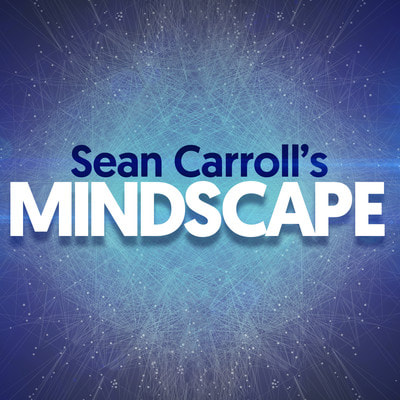In this post, I'll be relying on another podcast with Sean Carroll — Episode 78: Dan Dennett on Minds, Patterns, and the Scientific Image. In a recent January 2020 tweet, Dan Dennett himself said that this was, "Another excellent interview, this time with Sean Carroll. If you haven't overdosed on Dennett in the last few days, this will clarify key points." Here, then, are some of those key clarifying points:
- [Do you have a simple definition of consciousness?] No. But that’s okay. That’s the way science works too. There’s no perfect definition of time or energy, but scientists get on with it.
- Consciousness emerges (in the innocent sense, not the woo one), and the idea that consciousness is one thing, that everything in the universe is either conscious or not, that the light is either on or off—that is a fundamental error. But it is very widespread.
- The search for the simplest form of consciousness, therefore, is a snipe hunt. Starfish have some elements of consciousness, so do trees, and bacteria. (But not electrons.) We can argue about motor proteins. The question of “where do you draw the line?” is an ill-motivated question. Where do you draw the line between night and day?
- Electrons can’t accrue memories. They do not change over billions of years. They do not participate in the arrow of time, so there is no way for them to be said to have intentions, feelings, purposes, or goals.
- Human consciousness is much different from the consciousness of other species. This is an embattled view, but I’m pretty sure of it. It’s hard to see this because consciousness has a moral dimension and we want to be kind to animals. But don’t worry. The conscious properties we share with mammals and birds, and to some degree with reptiles and fish, are significant. Moral significance itself is also a graded notion.
- UK law says it is now illegal to throw a live octopus onto a hot grill. This one species is an honorary vertebrate. It’s not all cephalopods, although maybe it should be. Lobsters can be boiled. Squid can be grilled live. Vertebrates must all be treated humanely. The law has to draw a line and these need to be reasonable to a vast majority of the people.
- Human minds are profoundly different from other minds, because they are obliged to articulate reasons. This is why I’m interested in the history and evolution of language.
- If I ask you to picture a rope and climbing up it, you can do it. I specifically chose those objects and actions because it is exactly what a chimp in a zoo is familiar with. If I asked a chimp to do the same thing, could it? We don’t know, but I suspect not, because you can’t do it wordlessly. You need to be able to interact using language. Without language, I don’t think you have the cognitive systems for self-simulation and self-probing that we have. ... Language allows us to be conscious of things we otherwise wouldn’t be able to be conscious of. If you believe that recursion and self-representation are crucial to consciousness, then language is a huge part of that as a useful tool.
- Degrees of freedom is something I’m using more lately. It is an opportunity for control. Degrees of freedom can be clamped or locked down to be removed. How many degrees of freedom do humans have? Millions and millions of things we can think of. We have orders of magnitude more that we can think of than a bear does, even with roughly the same number of cells. So, our complexity is higher. The options a bear has are a vanishing subset of the options that we have. Learning to control these options is not now a science. It is an art.
- Many theories of consciousness only have half of the theory. The upward stream. But what then? What does consciousness enable or take away from? The answer is that almost anything can happen [with consciousness]. But we need a neuroscientific theory as to how that happens.
Brief Comments
I can't say that Dennett puts a foot wrong here. His commitment to evolutionary thinking and following evidence leads to some conclusions that are out of step with much of society, but I find myself pretty much right there with him. I would question his point about electrons not having any elements of consciousness, but that's probably just based on terminology, and speculation that we may someday get from physics to chemistry to biology (where Dennett finds conscious elements). Without a good theory of abiogenesis (i.e. the origin of life), Dennett seems happy to pragmatically confine himself to studying consciousness as if it were a material phenomenon. I agree that's a useful hypothesis to hold until something better comes along.
I also really liked Dennett's use of the engineering terminology "degrees of freedom". This reminds me of "the parable of the immune system" that the evolutionary scientist David Sloan Wilson often uses to make a point. For example, on The Psychology Podcast (Episode 167: Evolution and Contextual Behavioral Science), Wilson said:
"The human immune system is immensely modular. We inherit it, and it does not change during our lifetime. It is something that evolved by genetic evolution, but it is triggered by environmental circumstances just as the evolutionary psychologists like to point out. The adaptive component of the immune system is highly evolutionary. That’s the ability of antibodies to vary and for the successful antigens to be ramped up. So that’s an evolutionary process that takes place during the lifetime of the organism. The whole thing is densely modular but also amazingly open-ended. Why can’t we say the same thing about the human behavioral system?"
It seems obvious (to me anyway) that we can say the same thing about our behavior—that it adapts during our lifetimes to successful and unsuccessful interactions with the environment. And it seems that more and more consciousness might give life more and more degrees of freedom as it helps an organism make more and more sense of its environment. But to really consider that, we'll need to consider Dennett's questions, "But what then? What does consciousness enable or take away from?" And do to that, it's time to turn to the neuroscientific theories of consciousness being developed and explored by scientists.
What do you think? Does Dennett's evolutionary perspective continue to make sense? Are there any gaps in the story that need more explanation? Let's discuss that in the comments below.
--------------------------------------------
Previous Posts in This Series:
Consciousness 1 — Introduction to the Series
Consciousness 2 — The Illusory Self and a Fundamental Mystery
Consciousness 3 — The Hard Problem
Consciousness 4 — Panpsychist Problems With Consciousness
Consciousness 5 — Is It Just An Illusion?
Consciousness 6 — Introducing an Evolutionary Perspective



